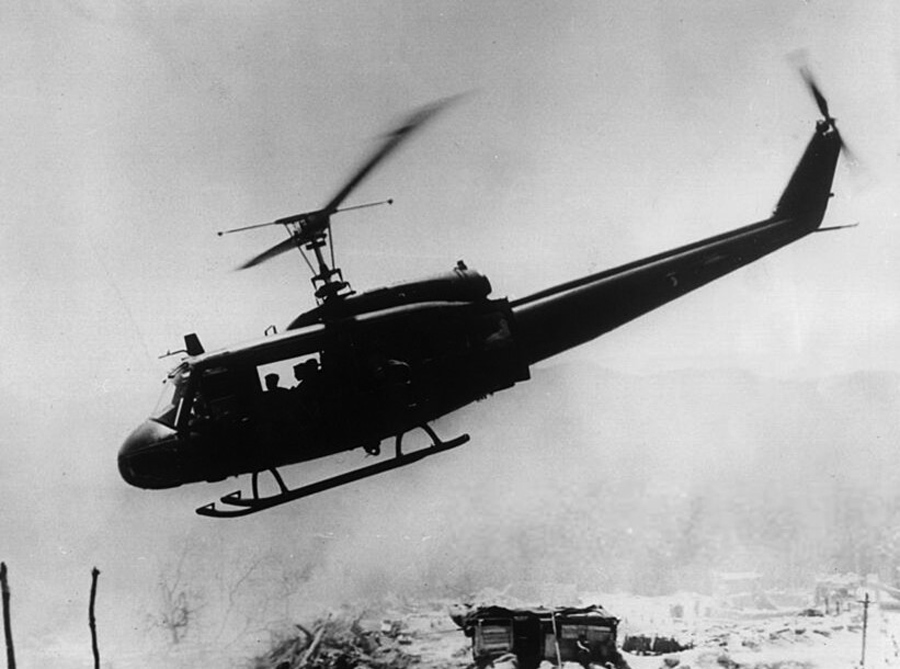The Vietnam war was unlike any other major engagement the United States had ever fought. In the Viet Cong they found an adversary who eschewed the normal patterns of warfare, refused to engage in open battle, and used the territory to every advantage against their foe.
Against such a resourceful and agile foe, the U.S. was forced to adopt their own unorthodox tactics to meet them, and beat them, at their own game. And one of their most unusual and daring tactics was the use of ghosts to haunt the Viet Cong soldiers.
Named “Operation Wandering Soul”, the plan was simple: undercut the morale of an enemy you cannot see, so they cease to be an effective fighting force without the need for direct engagement. In this way, the U.S. military hoped to defeat the enemy and force their surrender before a shot had even been fired.
The proposal was simple in execution: a broadcast would be made into the jungle consisting of screaming and shrieking human voices. The soldiers who heard the voices, uncertain of their source, would be paralyzed with fear.
So, did it work? Ultimately, it is hard to say. But one of the recordings, somewhat prosaically dubbed “Ghost Tape Number 10” survives to this day. Listening to it, you can see how unsettling it would be to hear these sounds, were they to appear from nowhere in the deepest jungle.
Operation Wandering Soul
It was just after dusk on the night of 10th February 1970, when the jungle around the U.S Army Fire Support Base, Chamberlain in Hau Nghia Province of South Vietnam was filled with spine chilling and frightful sounds. The darkening night was filled with unearthly wails and moans, seeming to come from everywhere.

Intermingled with the screams were recognizable human voices, conveying a frightful message. One such voice, tortured and pleading, said “My friends, I have come back to let you know that I am dead…I am dead!” from the darkness.
- The Great Emu War of 1932: How did Australia Lose a War to Emus?
- Dare You Enter the Ploutonion? Gateway to the Underworld at Hierapolis
The voice further continued in Vietnamese, saying, “It’s hell…I am in hell! Don’t end up like me. Go home, friends, before it is too late!” The U.S. Army followed this dire warning with a chorus of other strange and disturbing sounds such as sobbing women, banging gongs and a child’s cry for their father.
It is easy to see how the Viet Cong soldiers who took shelter in the darkness of the jungle could believe these sounds came from the wandering souls of their dead comrades. The entire jungle beyond the American perimeter came alive with the terrifying voices, surrounding the Viet Cong soldiers hidden in the darkness.
The U.S were also canny enough to tap into local folklore. The Vietnamese believed that the spirits of dead soldiers that couldn’t return to their homes for proper burial were cursed to remain on Earth in torment.
There is some evidence that the Vietnamese actively held these beliefs, and there were apparent recovery efforts made by the Viet Cong after hearing these voices. These attempts to retrieve their dead suggest that they believed the voices they heard.
In this, the U.S. had chanced upon a very effective psychological weapon to use against their enemy. So long as the Viet Cong believed the voices, the U.S. would have an advantage.
Absolutely Secrecy
The entire plan rested on the Viet Cong not realizing that the voices were an American trick. American soldiers used portable speakers at various points both along their perimeter and deeper in the jungle, to mask the source of the sounds.

The recordings have been carefully tailored weeks before. A Saigon sound studio was purposed to make the recordings, which were then professionally edited to maximize the realism of the voices.
It was part of a Top Secret U.S. Military Psychological Warfare Campaign. This secret plan was organized by the 6th PSYOP Battalion of the U.S. Army in collective cooperation with the U.S. Navy.
The sole intention of this campaign was to demoralize the enemy battalions and to force them to desert their positions. Scaring the enemies would offer the U.S. army an edge over their strategies. And that seemed to work pretty well.
A Success?
The PSYOP battalion expanded their range across South Vietnam after the first trial. The American units employed similar types of recordings between 1969-1970, with mixed results.
On one occasion, the sound of a tiger’s growl was added to a broadcast, recorded from Bangkok Zoo. The recording, complete with the sound of the dangerous jungle cat was then transmitted at a South Vietnamese hilltop controlled by the enemy. Hearing this terrifying noise, around 150 Viet Cong abandoned their positions and fled.
But in some other cases, the Americans decided to play recordings on speakers mounted on helicopters, supported by leaflet drops. Faced with a more obvious source of the broadcasts and realizing they came from the Americans, the helicopters were often fired upon and the plan met with limited success.

But it definitely worked in some cases. There were occasions where the tapes turned out to be so effective that there are reports of Vietnamese troops being terrified. The civilian population were also deeply frightened upon hearing the tapes.
A Vital Edge in an Unorthodox War
Hence, in this way, Operation Wandering Soul was executed and helped Americans gain an edge over the North Vietnamese soldiers. The idea, now proven, was adopted and adapted by the U.S. in their more recent military actions.
One American soldier, a PSYOP officer, recalled the operation and said that, even when the enemies saw through the cunning strategy, the soundtrack would still leave them anxious and afraid to engage. And so as an effective anti-morale tool, Operation Wandering Soul was a success.
Top Image: Unearthly shrieks in the night proved an effective psychological weapon. Source: Hektor2 / Adobe Stock.
By Bipin Dimri